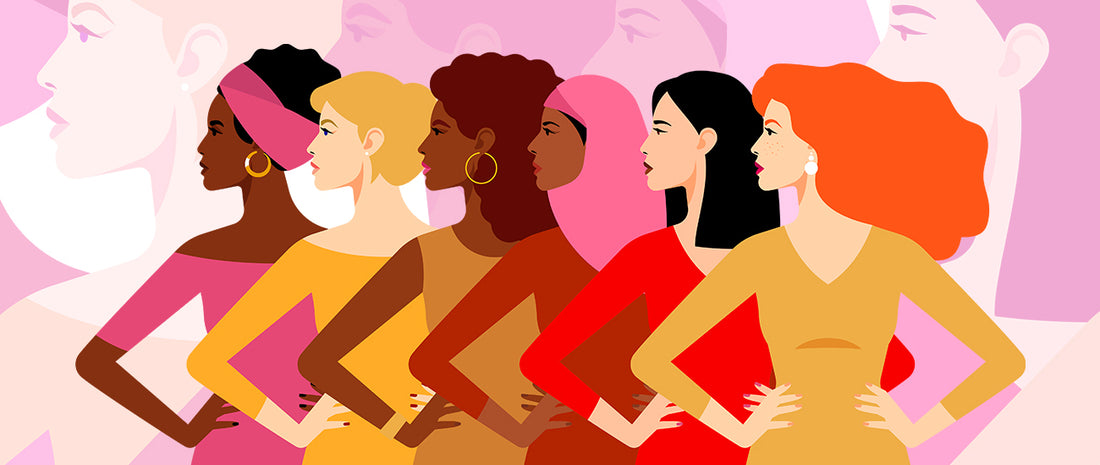March is a busy month. Along with serving as the official start of Spring, it’s also when Women’s History Month and International Women’s Day take place. It’s the time of year when we pay attention to the strides that women have made in the past, as well as highlight the work that needs to continue for us to achieve true gender equality.
But one interesting area where women have had the opportunity to excel independently of male approval is in the beauty world. Whether selling health and beauty products door-to-door or building beauty empires from the ground up, the beauty industry has been one space where women have experienced more autonomy from the start.
Why Women’s Rights Matter
Historically, women have normally been an underrepresented and disadvantaged class worldwide. While there are hallmark moments where women have served as rulers or attained independent wealth that offered the freedom to make decisions without male input, this has not been the norm.
Typically across societies, women were viewed as extensions of male relatives or husbands. As such, they weren’t able to freely participate in society. From owning land, securing a job, choosing when to get pregnant, or even managing their finances, these activities that many of us view as a standard practice were and continue to be anything but for many women. But let’s take a look at a few pioneering beauty mavens who carved out a space for themselves in times that weren’t always hospitable to female entrepreneurs.
Madam CJ Walker
by Scurlock Studio (Washington, D.C.) (photographers)., Public domain / Cropped from original
Madam CJ Walker is best known as the first female self-made millionaire in the United States. While this feat alone is pretty impressive, it’s even more awe-inspiring when you realize that she was a Black woman who achieved these heights at a time when Black wealth wasn’t common or encouraged in the mainstream.
Born Sarah Breedlove just after the end of slavery in 1867, it wouldn’t be until the turn of the century between 1905 and 1906 that the Madame CJ Walker brand would debut. This collection of hair care and beauty products was catered specifically to Black women. The business began as a door-to-door strategy which later thrived and became the Madame CJ Walker Company. While Walker passed away in 1919, the brand continues to exist today — although the focus has shifted from relaxers to more inclusive hair care that encourages textures rather than straightening them.
Elizabeth Arden
by New York World-Telegram and the Sun staff photographer: Fisher, Alan., Public domain / Cropped from original
Before Ulta and Sephora, there was Elizabeth Arden and the Red Door storefront. This New York shop was created by Elizabeth Arden, a nurse turned beauty aficionado who became interested in biochemistry. After moving to New York and working in salons, she began to develop her products and marketed them under her name.
In 1910, Arden opened her first store with an iconic red door. Initially, the brand started as a skin care-only operation. But she later incorporated color cosmetics after visiting Paris during World War I and being influenced by Parisian beauty trends with mascara and eye shadow.
Mary Kay

by LizaKoz, CC BY-SA 4.0 / Cropped from original
Consultant-based sales strategies aren’t a new concept. Most of us know of at least one person in our social circle that’s selling makeup, skincare, home goods, or clothing. But one of the most iconic of those businesses is Mary Kay. Originally founded as Beauty by Mary Kay in 1963 by Mary Kay Ash, the business initially began as a storefront operation.
However, she later realized that women would feel more comfortable in their homes, and shifted the business model to door-to-door sales. Today, Mary Kay is still bringing beauty to consumers in the comfort of their homes, all with that iconic pink packaging.
When Women Succeed, Society Benefits
While women are by no means limited to the beauty industry, it was one early avenue that allowed for independence and autonomy in a time when women — regardless of race — weren’t afforded that option. To this day, the beauty industry continues to be a space where female entrepreneurs can dominate with ease.
Whether launching independent beauty brands or working as consultants for door-to-door sales firms like Mary Kay, Avon, and more, this industry is one line where representation for strong, independent women that are taking control of their futures isn’t lacking.



